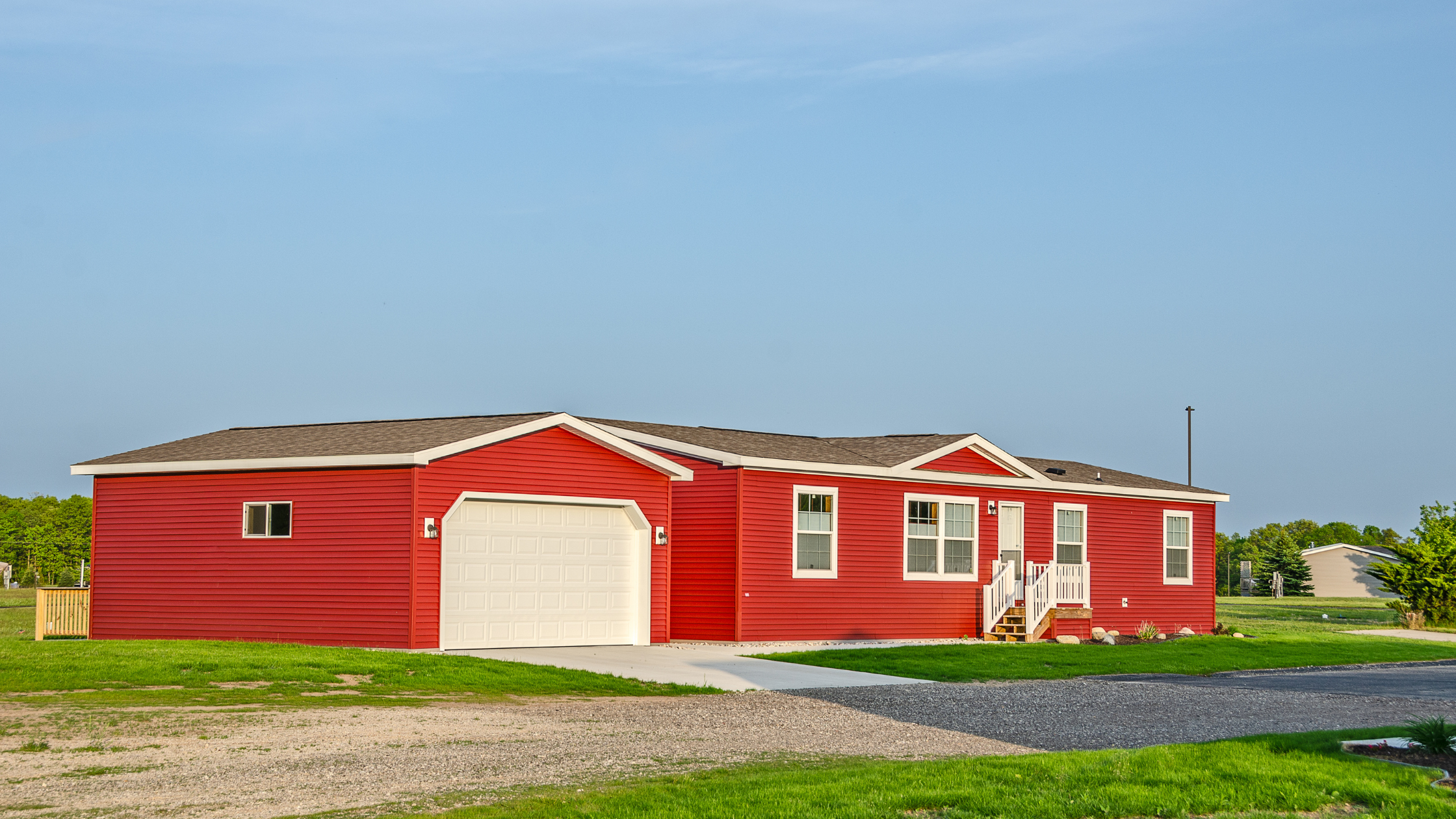Tax Exemptions and Your Manufactured Home
March 16, 2021

A manufactured home can be classified as personal or real property. This means that a manufactured homeowner can choose to continue to use the home as personal property and pay the annual license tax required or convert it to real property and pay real property taxes. A positive aspect of converting your manufactured home to real property is that you may be eligible for a series of tax exemptions and deductions. In order to better understand the tax benefits of owning a manufactured home, let's take a look at the differences between tax exemptions and tax deductions.
Although tax deductions and tax exemptions serve the same purpose, the two are completely different. In a nutshell, property tax deductions are expenses that can be subtracted from your income taxes up to a limit, while property tax exemptions refer to a portion of your property's value, expressed either as a fixed dollar amount or percentage, which is excluded from taxation. Below are the property tax exemptions and deductions* you may be eligible for if you own a manufactured home that's classified as real property.
Homestead Exemption For a Manufactured Home
The homestead exemption provides qualifying manufactured homeowners with ongoing property tax relief. Although the rules and regulations governing the eligibility for this exemption vary by state, real estate properties are typically taxed on their market values minus the exemptions for which the homeowners qualify. For example, assuming that your manufactured home is worth $180,000, and you live in state with a 1% property tax and $50,000 homestead exemption, you will end up paying 1% of $130,000 ($180,000-$50,000), which is $1,300, if you qualify for the homestead exemption. Note, however, that the homestead exemption only applies to the portion of your manufactured home's value in which you have equity. Additionally, if your financial situation will ever bring creditors to your door, the homestead exemption allows you to claim a certain amount of equity you've built up in your home as exempt from debt collectors.
Property Tax Exemption for Military Veterans
Most states offer property tax exemptions to the veterans who served during wartime (though some states offer this exemption to all veterans, including those who served during peacetime), were honorably discharged, and/or have a specific VA disability rating. In addition to being a veteran, you might need to comply with a series of requirements relating to income restrictions, the market value of the property, the type and length of residency, and the VA disability rating in order to be eligible for this exemption. In some states, the veterans who are below a certain income level or have a higher disability rating may be eligible for additional exemptions.
Property Tax Exemption for the Elderly and People with Disabilities
This exemption is designed to assist disabled and elderly taxpayers by providing partial or total tax relief. To qualify for this tax exemption, a manufactured homeowner needs to meet specific eligibility criteria relating to age, income, residency, and/or disability rating. However, a manufactured homeowner's eligibility also depends on where the property is located, as each state has its own set of procedures and requirements that homeowners must meet. For instance, Washington requires homeowners to be at least 61 years old in order to be eligible for the senior citizen homestead exemption, while the minimum age at which a homeowner could qualify for this exemption in Virginia is 65. Because some requirements can also vary among the counties of the same state, you should check with your local tax assessor's office, appraisal district office, or CPA to see if you qualify for this exemption.
Tax Breaks for Renovations and Energy-Efficient Improvements
Because specific home improvements can increase the market value of properties, some states balance that increase by offering exemptions that lower the property tax bill. Sometimes, these exemptions come in the form of tax breaks; other times, the local governments offer tax credits that homeowners can use to lower their tax burden. In Illinois, for example, manufactured homeowners can make up to $75,000 worth of home improvements without an increase in property taxes for at least 4 years. In case that specific changes are made to a manufactured home for medical reasons, up to $100,000 of the increased value can be exempt from the property tax.
In addition to all these tax exemptions, there are a few other tax benefits you may qualify for. To begin with, you can deduct the buy-down points, also referred to as discount points, in full in the year you pay them or ratably over the life of your manufactured home loan. A few other home-related things you can deduct include sales taxes, remodeling and home improvement costs when you calculate the capital gains tax if you sell your home, and expenses for business use of your home (applicable only if you use part of your manufactured home exclusively for business).
One word of caution: In most states, tax exemptions aren't offered automatically. Therefore, you need to check what tax exemptions are available in your state and apply for them if you meet the eligibility criteria.
That's about it! If you already own a manufactured home and don't know what tax breaks you may qualify for, we can only hope that our blog post has offered you the information you were looking for. If you just wanted to discover the tax breaks available for manufactured homeowners but don't own a manufactured home yet, our professionals are here to help you find the financial resources you need in order to get into your dream home!
*The information in this blog post is for informational purposes only. Check with your local CPA for information that is most related to your home and state.
